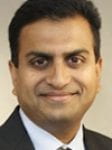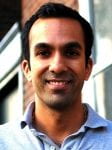ESSEX
Researchers affiliated with the University of Essex.
 |
Sonia Bhalotra | s.bhalotra@bristol.ac.uk Sonia Bhalotra is Professor of Economics, University of Essex, UK. She is one of the three Principal Investigators on the GCC award. Sonia holds an MPhil and DPhil from Oxford and a BSc from Delhi. She has a portfolio of research on the immediate and longer run impact of early life interventions on health and socioeconomic status. She has completed or ongoing work that involves estimating causal impacts on health, education and labour market outcomes of exposure to diarrhea (access to clean water), pneumonia (access to antibiotics), poor maternal nutrition, low levels of maternal education, maternal depression, recession and war. Another tranche of her research investigates fertility choices, sex selective abortion, maternal mortality, the intergenerational transmission of human capital and the impact on public service provision of raising the political representation of women and minorities. Her research uses micro-data from across developing countries and data for America and Scandinavia in the early twentieth century when infectious disease, sanitation and nutrition were public health issues. Sonia has served on steering commitees and scientific committees in the health and education domains, including at the WHO and ILO. Sonia’s papers are at https://sites.google.com/site/soniaradhikabhalotra/ |
 |
Joanna Maselko | joanna.maselko@duke.edu Joanna Maselko’s research uses a developmental and social epidemiological approach to study the mechanisms through which social and cultural factors influence mental health over the lifecourse. One specific area of interest is trying to identify how the family and social context shapes the intergenerational transmission of psychopathology risk. Towards this end, Dr. Maselko is currently evaluating the long term cognitive and socio-emotional outcomes among school-aged children whose mothers participated in a community based perinatal depression intervention in Pakistan. Dr. Maselko also leads a project that examines the family and social context determinants of well-being and cognitive decline among elderly in Sri Lanka. Another area of research focuses on how religious engagement facilitates risk or resilience in the context of socioeconomic adversities. With an emphasis of on disentangling causal processes, Maselko’s previous research has described the potential contribution of selection effects in the observed religious engagement-depression association. |
 |
Bhashkar Mazumder | bmazumder@frbchi.org Bhash “Bhashkar” Mazumder is a senior economist in the economic research department and executive director of the Chicago Census Research Data Center at the Federal Reserve Bank of Chicago. As a member of the microeconomic team, Mazumder conducts research in labor economics, education and health. His recent research has focused on the long-term effects of poor health early in life. His research has been focused in three areas: intergenerational economic mobility; the long-term effects of poor health early in life; black-white gaps in human capital development. |
 |
Una Okonkwo Osili | uosili@iupui.edu Professor Una Okonkwo Osili’s research lies within the field of development economics. In particular, she studies how households in developing countries make economic decisions where incomes are low and variable, and especially in the presence of market imperfections. Households rely on family members and community resources to deal with adverse economic circumstances which may include unemployment, ill health, crop loss and bad weather. In most cases, formal markets that provide credit and insurance are not well developed. Furthermore, government programs that can provide aid to households tend to be limited in scope. Migration – the relocation of one or more family members – can expand the resources available to households and provide some protection against location-specific shocks. In her research, Professor Osili has collected and analyzed data in Nigeria and the United States on the transfers that immigrants send to their home families. Can communities generate the resources to enable development? Currently, Professor Osili is studying the private income contributions and institutions using data from Indonesia. She plans to examine transfers to community-level institutions in other parts of the developing world and the role that community groups can play in the process of economic development. |
 |
Atheendar Venkataramani | atheenv@pennmedicine.upenn.edu Atheendar Venkataramani is a resident physician at Massachusetts General Hospital and a Clinical Fellow at Harvard Medical School. His main research area involves utilizing insights from medicine and economics to explore the impact of early childhood health and health interventions on long-run human capital and socioeconomic outcomes, in particular the mechanisms behind these links. He is working also on a series of projects examining behavioral responses to HIV treatment and prevention programs and their implications for health policy and planning. Currently, his clinical and research work are focused in Uganda, South Africa, Mexico, and the United States. |